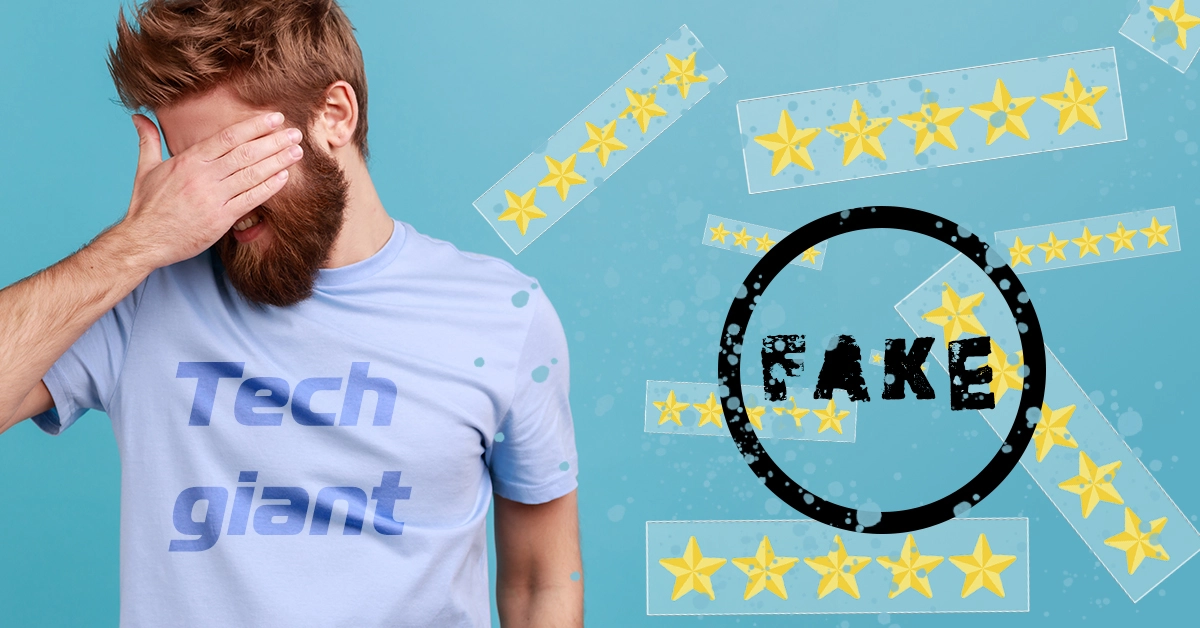
At a time when the news has been almost unremittingly downbeat, it was hugely heartening to read the recent BBC news report about proposed legislation to stop the publication of fake reviews.
The BBC Technology Editor Zoe Kleinman begins her post with the words:
“Buying, selling or hosting fake reviews will become illegal as part of changes planned in new laws.”
She explains that the government’s new Digital Markets, Competition and Consumer Bill “bans people receiving money or free goods for writing glowing reviews.”
The Bill also includes measures to stop consumers being trapped into paying subscriptions after the end of free trial periods while additionally seeking to end the market dominance of the tech giants.
These comprehensive proposals are all hugely important, but we will concentrate on fake reviews, not least because BBI Brandboost has warned about this pernicious fakery before!
Importance of updating
In 2018 we published an article titled “Rising Above the Five Star Fakers” relating to the practice of publishing fake reviews, but we revised and updated the content in February 2021.
Our original aim was to help businesses demonstrate that their messages were accurate and trustworthy in an online environment containing much content that was not. The objective remained the same, but circumstances had changed.
The main element in this decision to return to the subject of fakery was the plethora of false information being posted about the potential side effects of being vaccinated against Covid-19. As we explained: “The coronavirus pandemic has made matters worse in many ways, with those who like peddling untruths able to latch on to the fear and uncertainty surrounding this invisible threat.”
Turning to the topic of glowing reports, we cited this example.
“Ecommerce and product review sites declare their zero tolerance of this practice, but it is all too easy for smart perpetrators to game the system. A recent article in Search Engine Land “Why we need to fight fake reviews” highlights the infamous but fascinating case of The Shed at Dulwich, a restaurant that didn’t exist but still managed to become “the #1 ranked restaurant in all of London on TripAdvisor.”
So it is encouraging that a Bill is being brought forward and it is unthinkable that, at least in principle, it will not receive all-party support. But it will take time to come into law and, because it covers a range of issues, the issue of fake reviews forms just a part of its remit.
So, while the proposed legislation is definitely a major step in the right direction, both businesses and consumers alike need to be vigilant and attuned to false claims.
Identifying fake reviews

Google, “how to spot a fake review”, and you can find a reliable source for consumers.
Which? includes a range of excellent advice, underpinned by these key points:
“Don't just go by the overall score to make an impulse purchase. Read through the reviews, and keep an eye out for anything suspicious.
- Does the review have an extremely high percentage of five-star reviews? Consider how likely it is that so many people found the product to be 'perfect'. Is the reviewer going over the top about the product in the language? For some this may be natural, but if it happens a lot, be wary.
- Do lots of reviews include pictures or videos? Our investigations have found this is a common request from sellers who incentivise positive reviews.
- Does the review include specifics about the experience with the product? Real reviewers will often want to go into detail about their experience.
- Check the dates. If a lot of the reviews were posted at the same time, the seller might have used one of a range of methods to drum up positive feedback through incentivisation.”
Throwing our hat into the ring
BBI Brandboost works primarily in the B2B arena, so the types of testimonial we receive for our services will differ from the reviews aimed at consumers.
Nevertheless, we are happy to be judged by the Which? criteria as they could apply to the Google verified testimonials to the services we supply as a web services and marketing agency. Importantly, we would stress that:
- They are from named individuals or organisations
- They are specific about the positive impact of services they have received
OK, so we are well aware that competitors in our sector could also put forward reliable testimonials in their favour but, being realistic, we would be unlikely to put these forward as examples, would we?
Anyway, we hope you share our support for this new legislation and would value your feedback on these issues. Please contact us to discuss